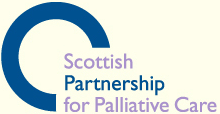- SPPC Achievements 2024-25
- Annual Conference 2025: From System Holes to Whole System
- Call for Posters
- Assisted Dying Bill - Perspectives Informed by Palliative Care
- SPPC’s response to the public consultation on the SG Strategy for Palliative Care
Poster Abstracts of the Month: November
Poster Abstracts of the Month: November
The SPPC Annual Conference in 2019 featured 32 poster displays, sharing work and research underway across Scotland. Each month, this blog focuses on the content of a few of these posters. This month, we focus on:
- A carer intervention to improve support for patients with delirium in a palliative care inpatient setting: A quality improvement approach
- A Service Evaluation of the Fatigue, Anxiety and Breathlessness (FAB) Programme ran in day therapies at the Marie Curie Hospice in Edinburgh
- Are Anticipatory Care Plans (ACP) implemented appropriately in patients who die soon after an Emergency Department admission?
- Cat out of the Bag
A carer intervention to improve support for patients with delirium in a palliative care inpatient setting: A quality improvement approach
Author(s) Max Fend, Juliet Spiller, Anne Finucane, Sarah Mabelson
Introduction: Delirium is a clinically significant condition for palliative care, found in up to 88% of inpatients at the end of life. There is little evidence for drug therapies to treat delirium in terminally ill adults, and recent findings suggest greater emphasis should be placed on supportive care. This project, using a quality improvement (QI) approach, aimed to improve delirium-related communication between patients’ families and nurses at the Marie Curie Hospice in Edinburgh, thereby aiding non-pharmacological management.
Methods: A baseline questionnaire assessed how nurses approach discussing delirium with family members. A leaflet to aid these conversations was introduced and tested in the inpatient unit. Using feedback from nurses and family members/carers, the leaflet was altered. This process of implementation, feedback, and alteration, went through four PDSA cycles. Results: Leaflet feedback was positive from nurses and family carers, both claim it was helpful. In our final questionnaire, all nurses said they would use the leaflet in future interactions with family members.
Conclusions: Despite small participant numbers this project suggests that a delirium leaflet for families is a useful and popular tool that helps informal carers to support their patient. More Quality Improvement cycles are required.
A Service Evaluation of the Fatigue, Anxiety and Breathlessness (FAB) Programme ran in day therapies at the Marie Curie Hospice in Edinburgh
Author(s) Kim Pollock
The FAB programme is multidisciplinary led and has been part of Marie Curie Edinburgh Hospice’s day therapies since February 2017. The programme considers the management of symptoms of fatigue, anxiety and breathlessness for patients living with progressive, life limiting conditions. It has been designed to enable patients to understand the symptoms of their illness, find coping strategies and learn techniques that can help to relieve and manage their symptoms aiming to achieve the best possible quality of life. The aim of this service review is to evaluate the effectiveness of the FAB programme over a two-year period by exploring the nature of referrals, uptake of service and attendance, follow up input after completion of the programme, patient feedback and outcome measure scores. The evaluation highlighted that the majority of patients recorded improvements in their palliative care outcome measure score. It also concluded that increased number of patients completing the programme coincided with an increased number of external referrals received. The evaluation also highlighted that a large number of patients with a non-cancer diagnosis are being referred to FAB. This evaluation and data obtained highlights that the FAB programme supports Marie Curie’s strategic plan to reach more people living with a terminal illness and help people regardless of their diagnosis as soon as the terminal phase of illness is identified.
Are Anticipatory Care Plans (ACP) implemented appropriately in patients who die soon after an Emergency Department admission?
Author(s) Polly Black
An Anticipatory Care Plan (ACP) outlines the appropriate clinical interventions and patients’ preferences to be adopted during end of life care. This study aims to identify the number of patients who were brought to an Emergency Department (ED) close to their death who may have benefited from an ACP but did not have one. ACPs were graded in terms of their usefulness and to understand if the ACP was followed during the admission that led to the patient’s death. One hundred hospital records were analysed. At least 1 in 5 patients may have befitted from an ACP but did not have one. Many ACPs were not completed comprehensively; vital information such CPR status was omitted in some cases. At the time of death, ACPs cannot always be followed due to the clinical status of the patient i.e. the patient is suffering from an unpredicted and acute condition requiring hospital management. However, 4% of patients (all living in nursing homes) were brought to the ED for emergency care in whom it does not appear appropriate, nor in line with the patient’s wishes, to do so. The findings from this study warrant further research to identify reasons for ACPs not being implemented.
Cat out of the Bag
Author(s): Lynsey Graham, Lisa McConnell, Katy Paterson, Jacquie Smith
‘Cat out of the Bag’ is a peer driven discussion group which focusses on the feelings, thoughts and questions patients attending the Edwina Bradley Day Hospice may have relating to the diagnosis, status of illness, symptom experience, prognosis, lifestyle, loss, wishes, preferences and plans. Concepts discussed range from Power of Attorney to family to Funeral Planning and everything in between. Discussions centre upon each concept as it is selected from the bag, so everyone’s concept matters.


